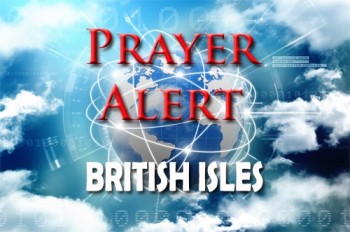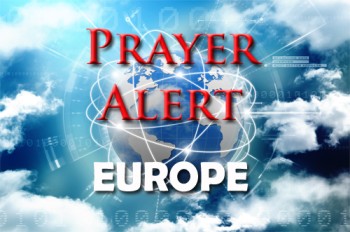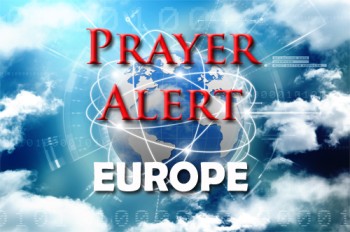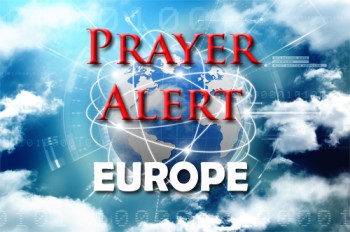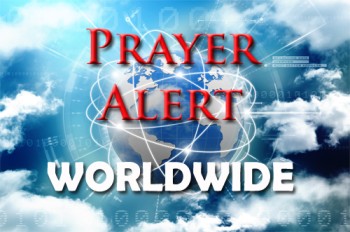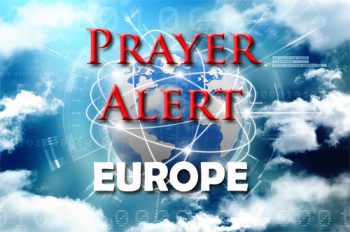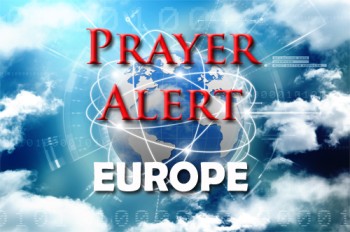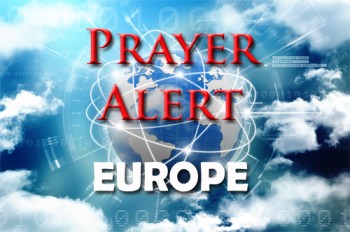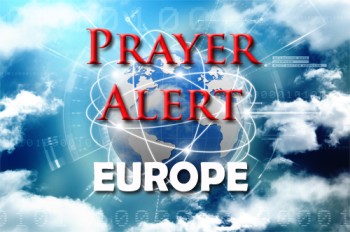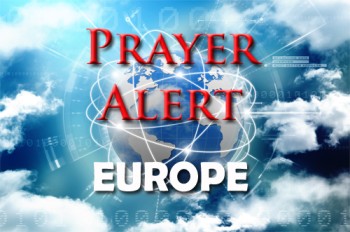Displaying items by tag: Russia
Navy chief warns: fund defence or risk losing Atlantic to Russia
General Sir Gwyn Jenkins, head of the Royal Navy, has issued a stark warning that the UK risks losing its long-held maritime advantage in the North Atlantic unless defence funding increases urgently. He said Britain is 'holding on, but not by much’, as Russia invests billions into rebuilding its naval power - especially its Northern Fleet - even while fighting in Ukraine. Russian activity in the North Atlantic has risen by 30% in two years, including incidents such as the Yantar spy ship shining a laser at RAF pilots. Jenkins warned that the greater threat lies beneath the surface, where vital undersea cables and energy pipelines are vulnerable to hostile interference. The Navy itself is facing severe strain: more vessels are tied up in port than operational, recruitment shortfalls are acute, and years of cuts and failed procurement programmes have left the fleet hollowed out. While avoiding direct criticism of the Government, Jenkins highlighted the widening gap between ministerial promises and available funding. He outlined a vision for a modernised 'hybrid navy', though it would not be fully ready until 2029 - a timeline some fear may be too slow given rising global threats.
Ukraine: Zelensky’s response to Trump’s criticisms
Donald Trump’s push to end the war in Ukraine is increasingly shaped by his impatience with Volodymyr Zelenskyy and European leaders who he believes are obstructing peace and future US–Russia economic ties. Stating that ‘Russia has the upper hand’ (a claim disputed by experts), he insisted Zelensky must ‘play ball’. Meanwhile, Zelensky and European partners worked to revise the US-led peace proposal, removing provisions which they considered unacceptable and stressing the need for firm security guarantees. Many commentators, alarmed by Trump’s pressure on Kyiv and his favourable posture toward Moscow, warn that conceding to Russia would reward aggression and endanger broader European security. In reply to Trump’s claim that Zelensky is using the war as an excuse to avoid holding elections, Zelensky has offered to do so if security could be guaranteed, although it would mean altering the constitution: see
Ukraine: Putin unwilling to accept peace proposal
The current round of diplomacy over the war in Ukraine suggests that Vladimir Putin remains firmly unwilling to accept any current peace proposal. After lengthy talks with Steve Witkoff and Jared Kushner, Kremlin aide Yuri Ushakov admitted that no compromise version has yet been found – not surprising given Putin’s increasingly uncompromising tone. He has denounced Ukraine’s leadership as a ‘thieving junta’, accused European leaders of obstructing peace efforts, and insisted Russia holds the battlefield initiative, even though many of his supposed gains are disputed by Ukraine and international observers. Russian state media has showcased Putin in military fatigues studying front-line maps, projecting confidence and momentum nearly four years into the invasion. Putin appears determined to convince both domestic and foreign audiences that he cannot be pressured into changing course. Yet sustaining war requires resources: oil and gas revenues are slipping, economic imbalances are widening, and the budget deficit is growing. The critical unknown is whether mounting economic strain will eventually alter the Kremlin’s wartime calculations.
Ukraine: differing signals about peace proposals
Hopes of a swift peace agreement to end Russia’s invasion of Ukraine have been tempered after the Kremlin cautioned against assuming a deal is close. Spokesman Dmitry Peskov said it was ‘premature’ to suggest a resolution may soon be reached, adding that outside actors - including the USA - might try to derail progress. His remarks followed more optimistic comments from Kremlin aide Yuri Ushakov, who confirmed Moscow had received a revised US-backed proposal developed with Ukrainian officials. Transcripts of leaked conversations suggest Russian negotiators believe the final document could align closely with their demands, while Steve Witkoff is expected to meet Vladimir Putin for further talks. Donald Trump has repeatedly highlighted what he calls strong momentum, claiming major points of disagreement have already been resolved. Yet elements reportedly included in draft proposals, such as Ukraine relinquishing the Donetsk region and abandoning NATO ambitions, remain deeply contentious for Kyiv. Diplomatic negotiations continue amid uncertainty and conflicting public signals.
Mali: abuses by former Wagner mercenaries
Testimonies from refugees in Mauritania reveal severe human rights abuses committed during counter-insurgency operations in Mali involving Russian mercenaries formerly associated with the Wagner Group. Witnesses describe arbitrary detentions, torture, and extrajudicial killings as civilians were accused of aiding jihadist insurgents. One former shopkeeper recounted being detained, threatened, and mistreated before later fleeing the country with his family. Others reported loved ones killed without explanation or being beaten while performing everyday tasks like herding livestock. Human rights monitors say these actions have spread fear and driven tens of thousands to flee across the border. Although Wagner has formally withdrawn, many of its operatives are now part of Russia’s Africa Corps, and concerns remain that abuses continue under a new name. Calls are growing for accountability and justice for victims, as communities struggle with trauma, displacement, and the loss of safety in their homeland.
Russia / USA: resumption of nuclear testing in tit-for-tat decisions
Vladimir Putin’s announcement that Russia may resume nuclear testing marks one of the most dangerous escalations in global security since the Cold War. He has instructed senior military and intelligence officials to prepare proposals for possible tests at the Novaya Zemlya site in the Arctic - where the Soviet Union in the past had detonated more than 200 nuclear devices, but none since 1990. The move follows Donald Trump’s declaration that the USA would restart its own nuclear tests, for the first time since 1992. Both leaders’ actions revive fears of an uncontrolled arms race, just as the last major nuclear treaty between Washington and Moscow nears expiry. Analysts warn that renewed testing could shatter global non-proliferation norms and invite imitation from other states.
Moldova: president warns of Russian interference as elections near
Days before crucial parliamentary elections, Moldova’s president Maia Sandu has warned that Russian-backed plots are threatening her nation’s independence and European aspirations. Police have arrested 74 people accused of planning violent unrest, seizing weapons and explosives allegedly supplied through Russian training in Serbia. Sandu accused the Kremlin of pouring hundreds of millions of euros into Moldova to spread disinformation, buy votes, and intimidate pro-EU supporters, echoing past meddling during the 2022 EU-accession referendum which was narrowly approved by just 50.4%. Pro-Russian parties deny wrongdoing and claim Sandu is stifling opposition, while Moscow’s SVR intelligence agency countered with disinformation alleging European plans to falsify the vote and occupy Moldova. Sandu’s Party of Action and Solidarity faces stiff competition, especially in Russian-speaking regions like Gagauzia where many favour closer ties to Moscow. She is calling for high voter turnout, particularly from the diaspora, to safeguard the country’s sovereignty and keep its path toward EU membership.
Russia and Belarus conduct military exercises as NATO feels the heat
Watched by US military officers and delegates from Turkey and Hungary, Russia and Belarus have launched large-scale military exercises across their territories and nearby seas, showcasing advanced weaponry and tactical nuclear capabilities near NATO’s eastern flank. The drills, involving roughly 6,800 troops as well as fighter jets and missiles, practised modern combat tactics like drone-assisted infantry assaults. Relations between Washington and Minsk seem to be improving; Belarus has recently released 52 political prisoners, prompting the Trump administration to ease some sanctions. Meanwhile, NATO allies remain uneasy after Russian drones repeatedly violated Polish and Romanian airspace. European leaders worry the exercises highlight Russia’s growing nuclear reach and evolving battlefield strategies, while Moscow insists it is open to dialogue but blames Western nations for obstructing progress toward resolving regional tensions.
Poland: reactions to Russia’s drone attacks
Russia’s unprecedented drone strikes on Poland on 9 September are framed as both a test and a warning to Europe and NATO. Moscow, adept at ‘salami-slicing’ escalation, is probing allied resolve with incremental provocations - from bombings in Kyiv to GPS jamming: each crossing a new line while eliciting mostly rhetoric. Similar tactics enabled the 2014 seizure of Crimea, and hitting Polish territory is a larger slice meant to measure the alliance’s willingness to honour Article 5. A direct military response is deemed unlikely, yet inaction risks projecting weakness and inviting the next escalation. Sanctions talk will grow, but prior rounds neither deterred invasion nor reversed it; energy sanctions that might bite remain politically constrained. The strikes also serve as a warning against deeper Western involvement in Ukraine: Russia’s deniable, ambiguous tactics could complicate any future allied deployment after a ceasefire. The core question: can NATO deter without stumbling into a wider war?
Bulgaria: von der Leyen’s plane subjected to electronic jamming
On 1 September, In what authorities suspect was Russian interference, Ursula von der Leyen’s plane was subjected to GPS jamming while landing in Bulgaria,. The flight, which landed safely using paper maps, highlighted the persistent threat of disrupting aviation traffic electronically. Russia has long been accused of such tactics, particularly in the Baltic and Scandinavian regions, though the Kremlin has denied involvement. The incident occurred during von der Leyen’s tour of eastern EU states, aimed at reinforcing solidarity with Ukraine amid ongoing Russian aggression. She said that the EU must keep up their sense of urgency, adding: ‘Putin has not changed, and he will not change. He can only be kept in check through strong deterrence.’ The event also served as a reminder of the risks faced by European leaders when showing visible support for Ukraine’s sovereignty and freedom.
